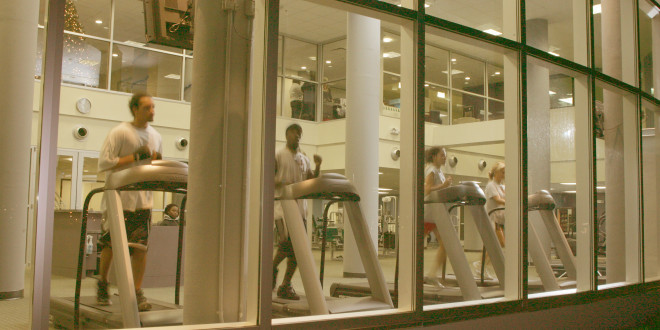
Most of us own a smartphone and can’t imagine our lives without it. It’s our constant companion during the day, and we even sleep with it close by at night. We now spend more time on our smartphone than with our partner during the day.
This equates to a lot of talking, emailing, texting, gaming, surfing and checking. In fact, we check our smartphone an average of 150 times a day. Can all this smartphone use be hazardous to our health?
While smartphones have many benefits — they instantly connect us to friends, family and colleagues and enable us to keep helpful apps at our fingertips — they also have many negatives. High smartphone use is associated with sleep disturbances, anxiety, depressive symptoms and even unhappiness.
The constant touching of your phone can also harbor germs on your handset. One study found that more than 90 percent of the cellphones sampled had bacteria on them. Ew!
Smartphones also cause selfishness and anti-social behavior. People using them in public places are less friendly to strangers. And we are all way too familiar with the scenario of families sitting together at a restaurant table not even talking because everyone is on their smartphone. It appears that smartphones satisfy our need to connect with others.
Perhaps not too surprisingly, spending huge amounts of time hovering over your smartphone doesn’t do much for your fitness. High-frequency smartphone users tend to be more sedentary and less fit than low-frequency users. And despite a surge in fitness apps designed to promote an active lifestyle, smartphone users are not very successful at using them.
For students, too much smartphone use negatively affects their grades. High-frequency smartphone users tend to have lower GPA scores relative to their peers who use their phones less often.
So yes, smartphones may be hazardous to your health. We need to power down our phones more often, talk to the people beside us, and get moving.
ASK FIT LIFE
Is laziness in your genes?
We are always looking for excuses for why we don’t exercise. We often blame things like lack of time, being too tired, the high cost of a gym membership, or bad weather for our constant inertia. Can we also blame our genes? It appears there is a genetic predisposition to laziness — at least among rats. Researchers found that rodents bred from “super runners” ran 10 times longer each day than those bred from a line of “couch potatoes.” Genes were then found that may play a part in a predisposition for exercise motivation. It remains to be seen whether such genes exist in people, and if so, how critical they may be to understanding our motivation to be physically active. But here’s the hard truth: Even if researchers find that your inertia may not be your fault if you are genetically prone to laziness, it still is your fault if you choose to be a couch potato.
Fit Life, by fitness and healthy aging expert Heather Hausenblas, associate professor of kinesiology in the Jacksonville University College of Health Sciences, appears the first Monday of each month in the Outside section of The Florida Times-Union. This column appeared July 7, 2014. E-mail your questions to hhausen@ju.edu. For more on JU’s Department of Kinesiology, visit ju.edu/COHS.
 Wave Magazine Online Jacksonville University News Hub
Wave Magazine Online Jacksonville University News Hub
